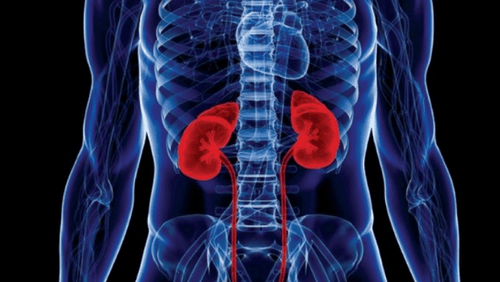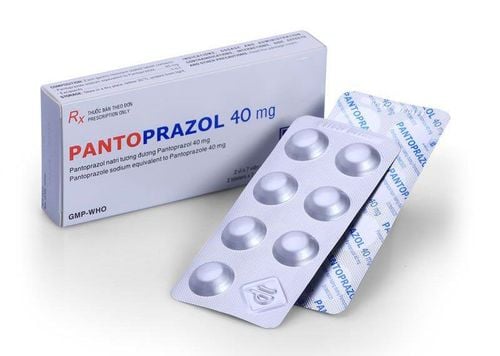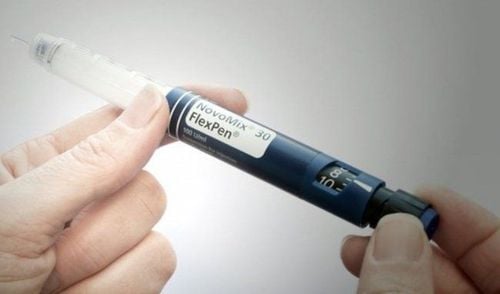This is an automatically translated article.
Complications of diabetes are diverse and pose a very high risk to the patient's life. Among them, diabetic microvascular complication is a complication that occurs in many organ systems such as eyes, kidneys and nerves. This is one of the complications of diabetes that any patient should be careful and control their body to minimize this complication.1. Microvascular complications due to diabetes
Microvascular complications from diabetes include diseases that affect parts of the body such as the eyes, kidneys, and nerves. This type of diabetes complication is caused by the patient's blood sugar level rising above the allowable level, affecting many organ tissues. However, if the patient knows how to regulate and control and maintain a stable blood sugar level in the body, this complication can be completely prevented. According to studies conducted in patients with diabetes, the majority of these patients will be at risk for at least one of the three types of diabetic microvascular complications mentioned above and have to live with diabetes. it for a long time.The mechanism of microvascular complications due to diabetes is explained by abnormally high blood sugar levels co-occurring with vascular oxidative stress leading to inflammation as well as damage. microchip. As a result, blood flow and permeability of nutrients through the endothelial cell layer are significantly reduced, leading to an increased concentration of extracellular protein deposition. Thus, coagulation takes place, leading to a series of disorders of the target organ systems.
2. Complications of the retina of the eye
This is a complication of diabetes that seriously affects the patient's vision. This disease is caused by a state of blood sugar too high, causing the small blood vessels that nourish the target organ, the retina, to become inflamed and tight, leading to blood clotting. At this time, the body will signal a lack of blood supply to the retina and immediately mobilize cells to perform the process of producing new blood vessels to respond, but these blood vessels have a rather weak structure. and easily break or rupture causing retinal bleeding in diabetic patients. Retinopathy is quite difficult to detect clinically because only when there is severe damage, it will manifest outwardly, so patients need to monitor their health status regularly to detect as soon as possible.
Bệnh lý võng mạc khá khó phát hiện trên lâm sàng vì chỉ khi có tổn thương mức độ nặng thì mới biểu hiện ra bên ngoài
3. Neurological complications
Neuropathy is considered to be the most dangerous complication in diabetes, and can have both acute and chronic neurological complications, but the prevalence of chronic neuropathy is often higher. The most common neurological complications are autonomic and peripheral neuropathy, and occur mainly in patients with type II diabetes:Autonomic neuropathy:
Heart pulse: tachycardia even at rest, rate > 100 beats/min, myocardial infarction without many symptoms, orthostatic hypotension, possibly even body temperature disturbances. Digestive system: complications that cause some functional damage of the upper gastrointestinal tract such as swallowing choking, feeling of fullness, indigestion, slow digestion, or heartburn, heartburn, abdominal pain in many epigastric locations, sadness vomiting or vomiting. Some functions of the lower gastrointestinal tract are also affected such as constipation, diarrhea... Urinary and genitourinary system: typically bladder neuropathy, genital hyperactivity manifested by erectile dysfunction , impotence for male patients, menstrual cycle disorder, menstrual loss, loss of sensation in the groin area... for female patients. Nervous system vasomotor: patients often have symptoms of increased sweating, especially in the face, body... and occur often when starting at meals or at night. In addition, in some other parts, there is a state of decreased sweating such as the distal area of the lower extremities causing dry skin, scaly skin, calloused feet, nail dystrophy... Hypoglycemia has no signs of recognition: Excessive secretion of Catecholamine and Glucagon causes blood sugar to decrease but cannot be clinically expressed so that the patient can recognize it. Peripheral nerve complications: some typical symptoms are tingling sensation, burning in the fingertips, toes, decreased or lost heat sensation, shallow sensation on the skin, dull pain in the legs and arms. At night...
4. Diabetes complications with kidney failure

Suy thận là biến chứng phổ biến nhất trong những loại biến chứng mạch máu nhỏ do đái tháo đường
Small vessel complications caused by diabetes leave many consequences on the patient's life, causing a serious decline in quality of life. Therefore, in diabetic patients, a special monitoring and care regimen is required to minimize the complications of diabetes.
Currently, Vinmec International General Hospital is providing a Diabetes Screening Package to help patients detect the disease early and improve treatment efficiency, accurately classify diabetes type, develop a nutritional regimen. Monitor and minimize the risks and complications caused by diabetes.
Using the screening package for diabetes and dyslipidemia at Vinmec, customers will receive:
Endocrine CK examination (with appointment) Total urinalysis (by automatic machine) Quantitative Glucose Quantitative HbA1c Quantitative Uric Acid Quantification of Cholesterol Determination of HDL-C (High density lipoprotein Cholesterol) Determination of LDL-C (Low density lipoprotein Cholesterol) Determination of Triglycerides Determination of Urea Determination of Creatinine Measurement of AST Activity (GOT) Measurement of ALT Activity (GPT) Measurement of GGT activity (Gama glutamyl Transferase) Quantification of MAU (Micro Albumin Arine) Echocardiography, transthoracic pericardium, Normal ECG, Carotid Doppler ultrasound, Transcranial Doppler (carotid) Arterial Doppler ultrasound, lower extremity veins (bilateral lower extremity arteries)
Please dial HOTLINE for more information or register for an appointment HERE. Download MyVinmec app to make appointments faster and to manage your bookings easily.













